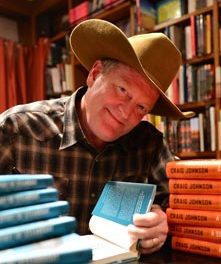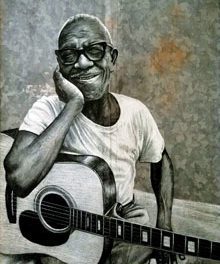
Lowcountry Weekly is pleased to announce the winners of the 6th Annual Sea Island Spirit Writers Short Story Contest. This year’s participation was amazing; we more than doubled the number of submissions! Writers were asked to include the phrase “torn scraps of paper” in a story limited to 750 words. The stories were judged by members of the Sea Island Spirit Writers, including Donna Armer, Katherine Tandy Brown, Deb Duer, Virginia Hall-Apicella, Ellen Kelley, and June Labyzon. They tell us the competition was fierce.
Thanks to everybody who entered a short story this year, and congratulations to the winners!
And now, without further ado . . . the winning stories:
1st place, $100 – Identity Crisis, by Tom Bixby
2nd place, $75 – Buried Along with Her Name, by Doris Wright
3rd place, $50 – There They Were Again, by Mary Ellen Thompson
Honorable Mentions, $25 each:
A Night in New Orleans, by Virginia Brown
Spite and Spitballs, by Florance Kamrandt
The Letter, by Carol Griffin
Identity Crisis
By Tom Bixby
Six years building another new identity up in smoke. Now the torn scraps of paper he fed into the fire, driver’s license, social security card, car registration, were worth less than the bullet they’d use on him. He’d heard the click of a camera through the open window of a black Escalade as he went into the grocery store. They had found him again.
He couldn’t risk going back to the car, even less to his cabin. He slipped out across the delivery dock and into the woods. By midnight he’d made it back up onto the Appalachian Trail, which he never got far from. It had saved him many times. The wiseguys weren’t likely to hike ten steps from their luxury SUV.
He dug up the backpack, money, clothes, and provisions that would have to last for the weeks or months it would take him to find another out of the way town that was just big enough for him to slip into unnoticed. He stared at the .38 revolver, without taking it out of the knapsack. He hated the damn thing but was afraid to get rid of it. He shivered as he remembered how defenseless he felt when they first came after him. He pulled the hood of his parka up over his head and bent closer to the campfire as the wind whipped snow flurries against his cheeks. Why they always seemed to find him just as winter began, he couldn’t guess. It made staying alive on the trail more difficult and at the same time more solitary.
He laughed out loud as he held the edge of his now useless union card to the fire. It hadn’t been the gun that started the problem but other little scraps of paper, numbers slips. He was only a young teenager then. He’d parlayed his beginner’s luck into bigger bets on sports and the ponies. The bigger he bet, the bigger they made his credit line. Then he got hooked on dice.
By the time he was sixteen he owed thousands more than even a working stiff with a good job could hope to ever pay off. Two goons drove him out to the cemetery with the intention of hurting him enough to put the fear in him. They frightened him so badly that he stabbed one of them in the neck with his house key, grabbed the man’s pistol and shot them both.
What he didn’t know was that one of them was a cop, a dirty cop working as an enforcer for the gambling mob. With no one to turn to, he ran; through countless towns and day jobs, living in tents, shacks and even a lean to. He couldn’t take a wife or even a girlfriend for fear they’d hurt her to find him.
Then for the last six years, he’d put his heart and soul into building a new life, all the while hoping and praying they had forgotten him. He shivered and his teeth chattered as he thought about having to leave it all behind and start again from scratch after wandering for months through the mountain snow and ice.
He wondered if the mobsters in the Caddy had found him on their own or with the help of their crooked cop friends. Either way, he was sure they hadn’t reported back yet. Ever since the big wiretap bust in Philly, these guys stayed away from phones except to order food. Besides, they would never let on to their bosses that they’d let him slip away again. By now, they might have planted a bug or even a bomb in his car and they would surely be staking out his cabin, hunkered down in the Escalade… maybe asleep.
He reburied the backpack in its hiding place, slipping the .38 into his jacket pocket. As he started back down the mountain, he dug his old housekey out of his pocket, the one that had saved him the first time, and kissed it for luck.
Buried Along with Her Name
By Doris Wright
Why did I tear it up? It was just some scribbles, I thought. Adding more injury to the insult, you could say. To have that shaggy haired boy write a song that he said was about me. Some might think it a compliment. But it made me—if it was me—sound so pathetic. Lonely.
I wasn’t lonely. I had the busy street to watch over. People going and coming. People with things to do. Why, I had things to do myself. I had mass on Sunday. Confession on Saturday. And tidying up the church.
And he claimed I was picking up rice in the church after a wedding. Ridiculous! I volunteered to clean up. Help out poor Father MacKenzie. Getting on in years, he was. He took care of the entire parish, visited the sick, and wrote brilliant, brilliant sermons. Oh, they brought tears to my eyes. We parishioners hung on every word. And he didn’t, never did, darn his own socks. Ha! He would have made lumps out of them if he tried. All thumbs, he was. No. He gave them to me and I took care of them for the dear man. Some were so worn, you could almost see through them. I had to just tear them into rags.
Just like I tore the paper. I wish I could have torn up the song itself. Had it never exist. I could hear people whistling the tune as they walked by my window. Laughing. Pointing my way as I peeked out from behind the curtain.
Do I think the boy meant to be nice? Not on your life! He lived in the flat across from mine. I could hear him going and coming with his mates. Oh, and girls, all up and down the stairs. Tiny skirts, hardly worth bothering with. You could see their underwear even. Shameful! And those white boots. Long hair and bangs. They all looked alike. Couldn’t tell one from the other.
Same with his mates. Same hair. Bangs. Scrawny and hungry-looking lads. Smoking in the hall though that was against the rules. I would open my door a crack. It was like they were looking for me, waiting for me to do so. Then they’d laugh. No they weren’t nice. Why laugh at an old lady who hadn’t done them any harm? I don’t care what they say, I never, nevercomplained to the Super. I mind my own business. I just like to take a look into the hall once in a while and make sure all is in order.
Yet that paper, I guess it was really the only memento I had worth saving. When he gave it to me, he said, “Mrs. Rigby, this is for you, darlin’. Something me and my mates has come up with. The original copy. See here? I signed it. Might even be worth a few quid someday. You hang on to it.”
I didn’t thank him. I didn’t even take it. He looked at me all funny, and then just let it drop, and I closed the door. But I picked it up later. I don’t leave messes on my floor, you see. I stuck it in this drawer. Until now. Until I had to pack up things, because the Council tells me I have to move out. Putting me in a nice retirement home, they say. Giving me no choice in the matter. Like I don’t exist. Like I’m nothing! Like I didn’t have a famous song written about me. So I put an end to it. Ripped it into these torn scraps of paper.
And now I’m sorry. Wish I could show it to someone. Say, “See here, I’m her,this is me. I’m somebody. I’m Eleanor!”
There They Were Again
By Mary Ellen Thompson
There they were again. Every morning, when my eyes adjust to daylight, I see torn scraps of paper that are littered all over the floor by my desk. Sighing, I put my right hand on my lower back to ease the ache of bending over, and pick up the scraps in my left hand. But today, instead of just dumping them all in the almost overflowing trash can, I placed them in a pile on the one clean corner of the desk. Surveying them, as I stood while doing some calf raises and squats so I could move through my morning with a bit more ease, I looked at the pile from one direction, then another; closed one eye and squinted, closed both eyes and thought.
My fingers began to drum absentmindedly on the desk, but not getting close enough to the pile to disturb its misaligned symmetry. Holding a deep breath, I tentatively reached two fingers closer to the scraps and then withdrew my hand so quickly it reminded me of the moment my mother held my small hand very close to a hot iron as a warning not to touch. Just that fragment of a memory made me want to brush the scraps into the trash with the edge of my hand, but I stilled myself, took a deep cleansing breath, and waited.
My mother, gone so long now that I can’t even remember the sound of her voice. I miss her still and wish for just one more day, hour, minute, chance to say “I love you, momma”.
Coffee? Would some coffee help me organize my thoughts? Would anything help me organize my thoughts? Thoughts that have been rambling, and riding on the back of a dark horse, and twisting their spiny little veins into corners that had no edges. No, I decided that coffee was not my beverage of choice for inspiration and introspection. Bourbon? Too early for sure. Bloody Mary’s are not in my vocabulary, no point in disguising the vodka with bloody mix. My mother taught me that, she drank vodka martinis straight up with olives. My mind’s eye saw her sitting across the table from me in the restaurant at Lord & Taylor, sophisticatedly sipping that martini. We were shopping for winter coats.
Then, my memory returned to when I was first living in London and went to a wine shop where the proprietor asked me what the occasion was for which I wanted to buy some wine. I thought he was a bit silly and asked why that mattered. “Oh,” he replied “it matters a great deal. You drink one kind of wine for special occasions, one kind for remembering, one for forgetting, and then there is dressing wine.” I, of course, asked what was dressing wine. He told me, as if I was the silly nitwit, “The kind of wine you drink while you are getting dressed.” I fell in love with him at that moment.
I guess if you can have dressing wine, it doesn’t much matter for which part of the day you are dressing. I wish I had asked if there was nightgown wine, yoga wine, but I really wish I had just set up a tent in his store and lived there happily ever after inventing occasions to drink wine. I think I would have had a great talent for that and could have increased his sales exponentially.
Anyway, this morning, the wine won, champagne in fact, because I believe even Emily Post thought it permissible to drink bubbles before noon. And who would want to fly in the face of etiquette?
I gathered the paper scraps, kissed them for luck and deposited them into a most luscious shade of red organza drawstring bag. It was like putting money in the bank. Those scraps danced in a magical flight and rearranged themselves like they were having a party in that bag. I laughed at their antics and felt the world around me lighten.
Finally, when they seemed to have settled down, and presented an amicable alliance amongst themselves, I reached into the bag and withdrew a handful at a time. Without thinking, I placed them, piece by piece, in a line across the table, most just containing one or two words. Scraps, discarded by me because they didn’t tell the story I couldn’t write, fell into perfect place and brought my mother home.







